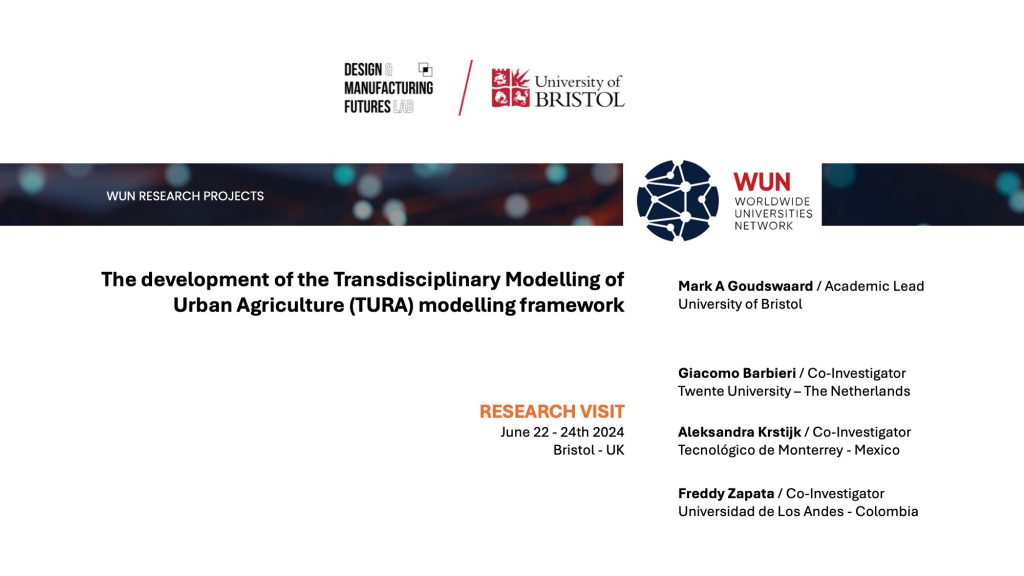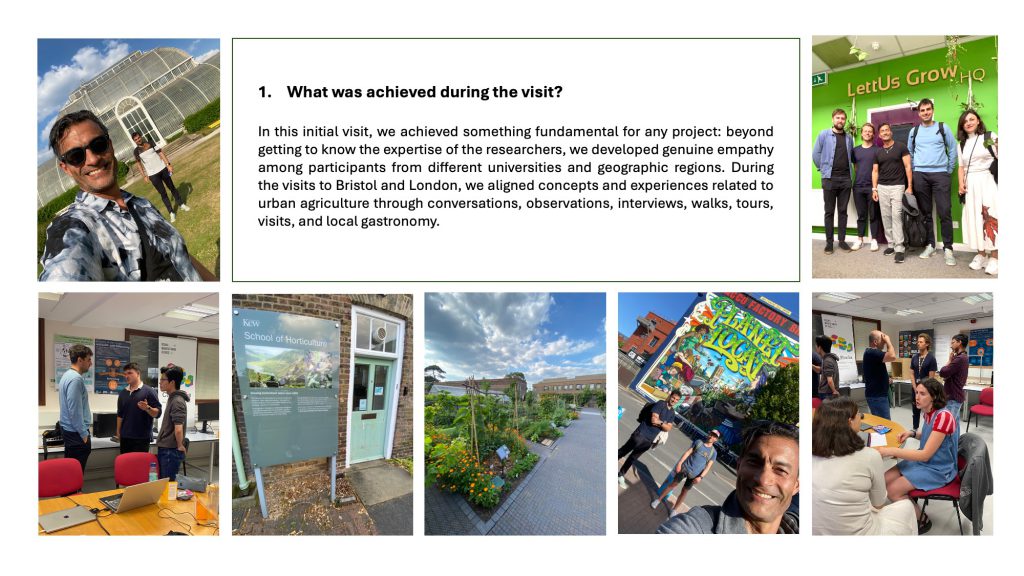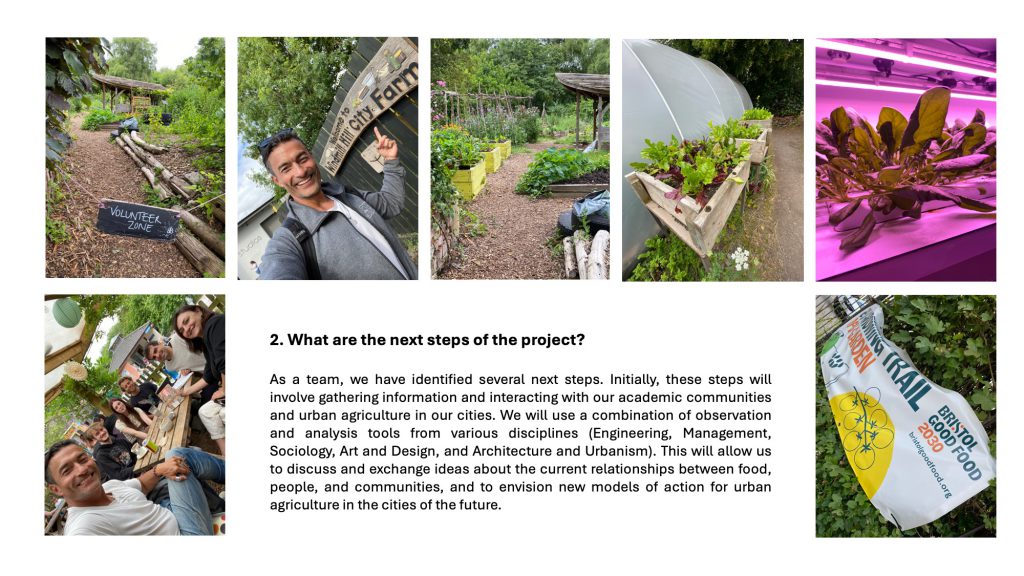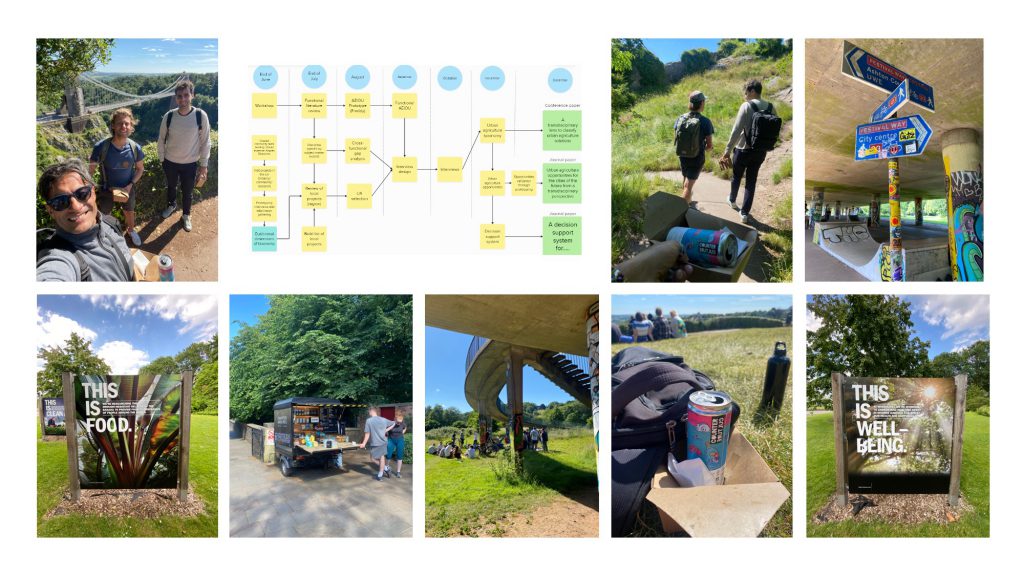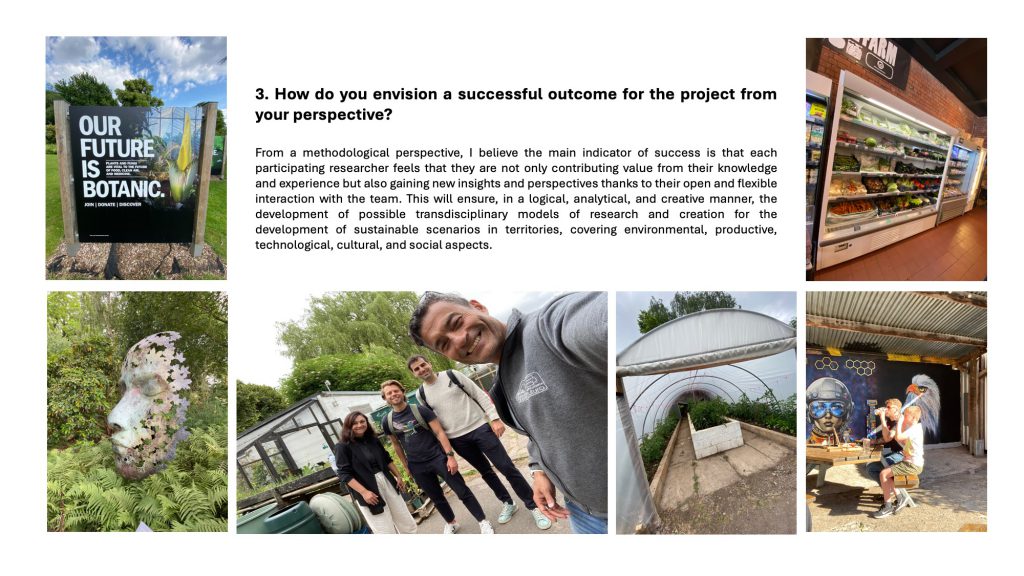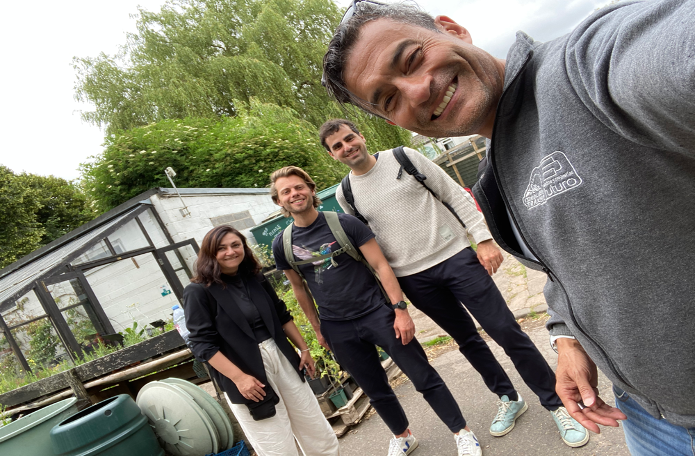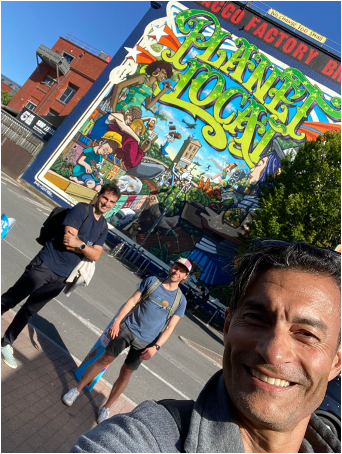
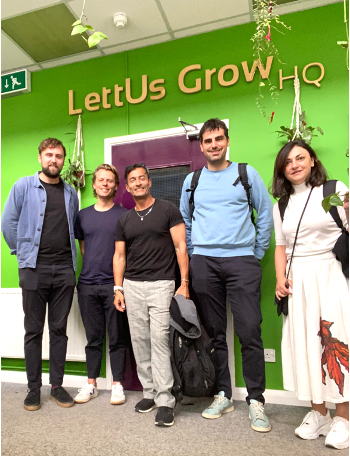
From the 21st to the 24th June, I was very glad to host some of the co-investigators (Dr. Aleksandra Kristikj, Dr Giacomo Barbeiri and Associate Professor Freddy Zapata) from our WUN funded, Transdisciplinary Urban Agriculture (TURA) project in Bristol where we progressed work on the project and visited a range of agricultural sites in Bristol and the South West.
The project itself seeks to develop Transdisciplinary models of Urban Agriculture (UA) that can support effective decision making regarding how UA should be implemented. (More information on the project is on the WUN page here).
During the visit were able to visit an agricultural research institution (Rothamsted Research), a community city farm (Windmill hill city farm), an exciting Bristol based urban agriculture technology developer (Lettus Grow) and the world-renowned, agricultural institution Kew Gardens.
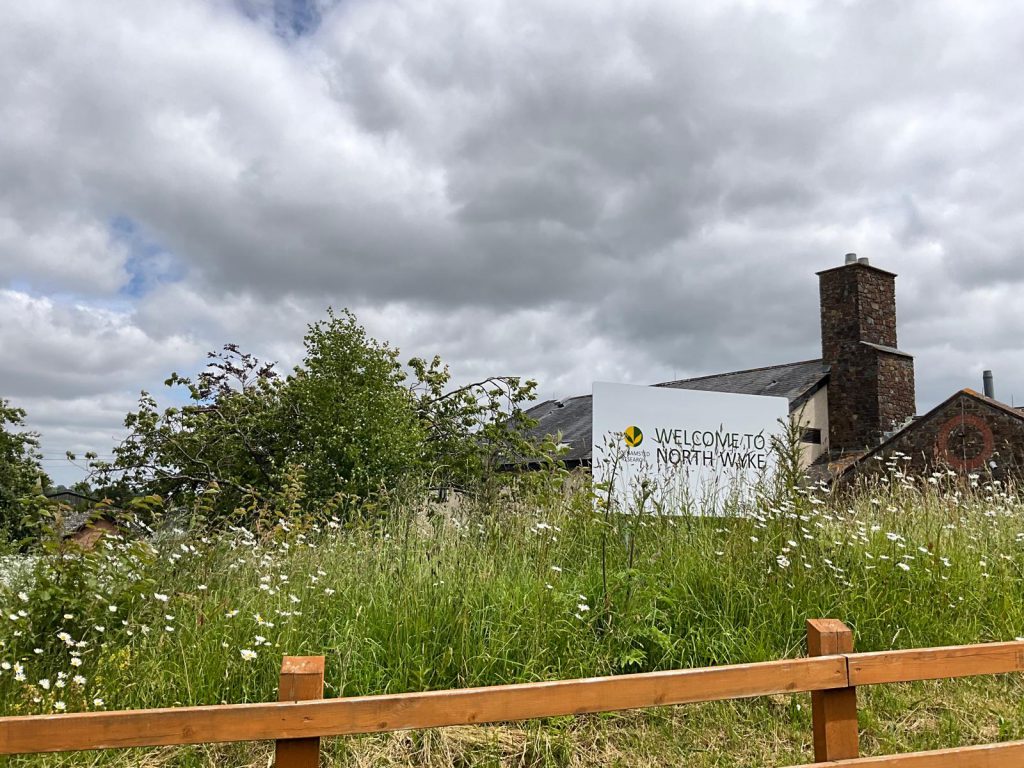
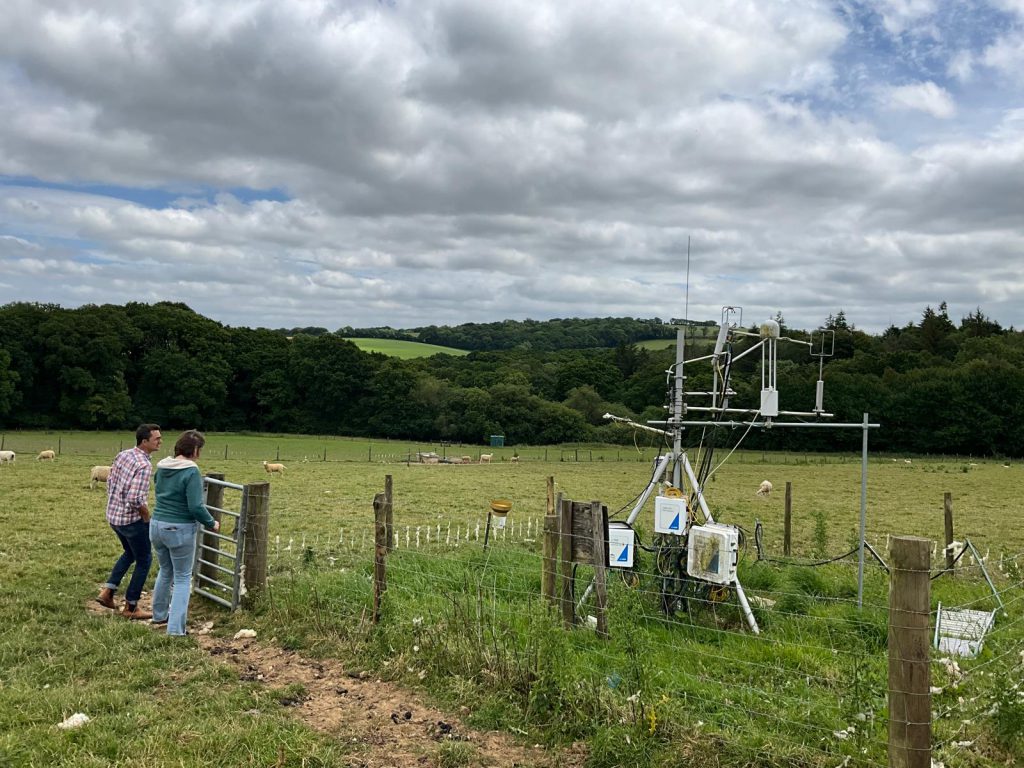
On the 21st June we were hosted by Dr Laura Cardenas at Rothamsted Research – the longest running agricultural research centre in the world. We were able to visit their labs and field sites where they conduct environmental monitoring assessment of different set ups of arable crops and ruminants (pictures above). Dr Cardenas will contribute expert advice to the project regarding the environmental impact of different urban agriculture systems.
Windmill Hill Community Farm provided us insights into how urban agriculture can contribute to communities as accessible green spaces, community hubs and educational assets.
At Lettus Grow we were kindly provided a tour and talk by CEO Charlie Guy who presented their case for urban agriculture, a demonstration of their technology and the benefits that aeroponics can afford.
In Kew Gardens we were inspired by the great variety of bio-diversity on show and how plants and fungi are our food, our wellbeing and our future.
In all of these cases, the value of urban agriculture was clear, not only as a valuable means of food production, but also as a means of creating substantial social value – as places where people build community and are able to re-connect with nature as something we come from as opposed to being separate too.
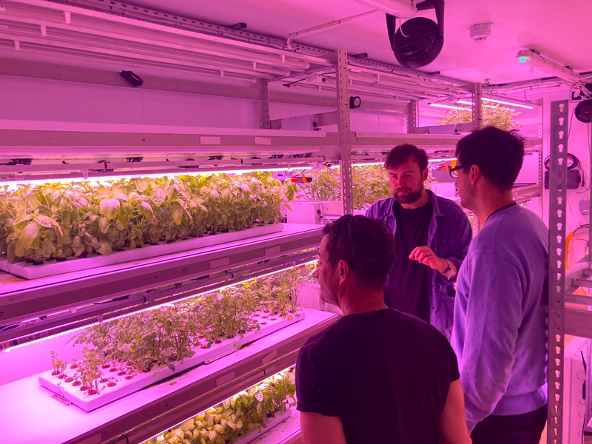
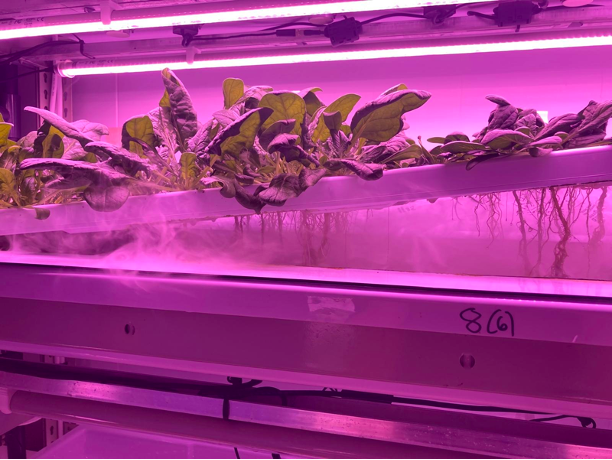
In addition to the various site visits, the working visit to Bristol allowed us consolidate a research vision and align perspectives from distinct geographic regions and disciplines. As the project is inherently transdisciplinary in nature, disciplinary alignment and cross-pollination of methods, concepts and domain logics is essential. Through discussions we were able to recognise the different lenses through which we view urban agriculture systems and identified a next step as model building through these different lenses, which include: interaction; asset management; and, accessibility.
Further to this, we were able to begin to build a general taxonomy of urban agriculture that permits us to characterise and contrast projects in our respective regions.
A short slide deck summarising the visit (kindly prepared by Giacomo and Freddy) is included below.
All in all, a very successful visit and it was inspiring to see local urban agriculture initiatives as well as identify the different ways in which our project is able to contribute towards it.
